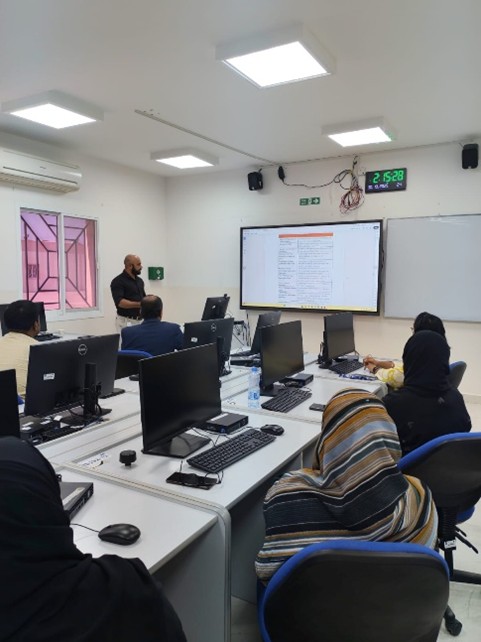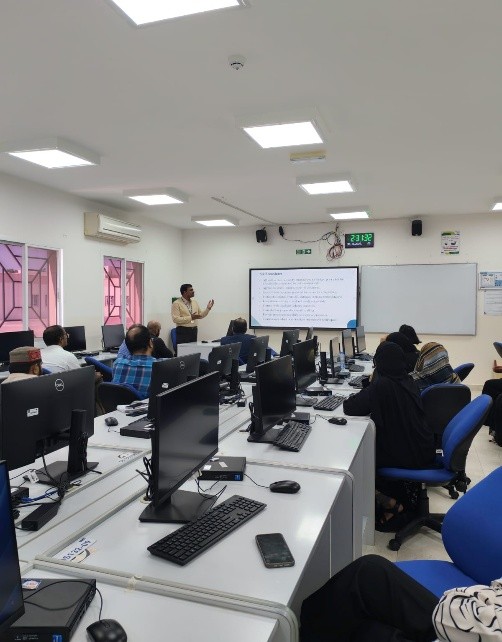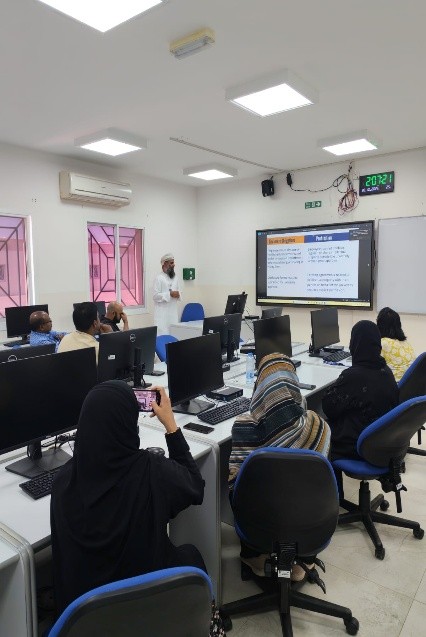Awareness Session on UTAS Policies
Business Studies
Awareness Session on UTAS Policies:
Intellectual Property, Academic Advising and Data Management
An informative Awareness Session on University of Technology and Applied Sciences Policies was held on Thursday, October 30, 2025, at 2:00 PM in Room BS132. The session aimed to enhance the understanding of key institutional policies among faculty and staff, focusing on three vital areas: Intellectual Property Policy, Academic Advising Policy, and Data Management and Documentation Policy.
Dr. Salim Amer Salim Al-Rashdi, Mr. Abdullah Thanseer and Dr. Edukondala Rao Jetti led the participants in an insightful discussion on how these policies play a crucial role in shaping the university’s academic environment and organizational culture, providing insightful presentations and practical perspectives on its significance and implementation.
Dr. Salim Amer Salim Al-Rashdi talked about the university’s Intellectual Property (IP) Policy highlighting its role in safeguarding the creative and innovative works of faculty, researchers, and students. He discussed the importance of understanding ownership rights and ethical use of intellectual resources. Mr. Abdullah Thanseer elaborated on the Academic Advising Policy, stressing its importance in guiding students toward achieving their academic and professional goals. He explained the roles and responsibilities of academic advisors, ensuring that staff understand their part and follow strictly the academic rules and regulations. Dr. Edukondala Rao Jetti covered the Data Management and Documentation Policy, a crucial framework that governs the collection, storage, and use of academic and research data. He highlighted the importance of maintaining data integrity, confidentiality, consistency, and accessibility.
The session concluded with an interactive Q&A, where participants shared ideas, clarified and doubts. The awareness session reflected the business department’s collective commitment to strengthening institutional governance.
SDC



168